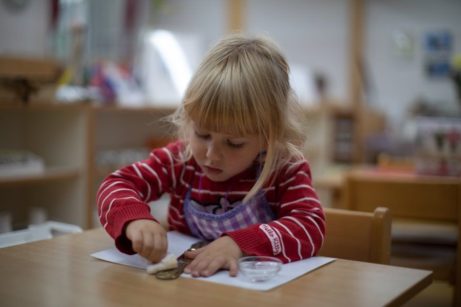Leading in a Time of Crisis
To Our Beloved Montessori Community:
During these difficult times of world-wide pandemic, it is normal and “okay” to be experiencing many emotions and reactions. Around the world we are each struggling on a day-to-day basis with what is unfolding as it impacts us.
It is helpful to know about the stages that show how humans cope with shocking and sometimes sudden news. Elisabeth Kubler-Ross is one of those notable medical professionals whose work is helpful in describing how we may be reacting now in this crisis. I first learned about her in the 1980’s when my school experienced the sudden death of child in our school.
She identified the coping stages people go through during, among other things, the sudden loss of a loved one. These are also the defense mechanisms we have in other difficult situations, so they are helpful now. She called the coping stages “the five stages of grief” and they are: Denial, Anger, Bargaining, Depression and Acceptance. Kubler-Ross saw them not so much in a linear way, but rather that we move in and back through these stages over and over as we live through the situation. And sometimes two of them exist at the same time.
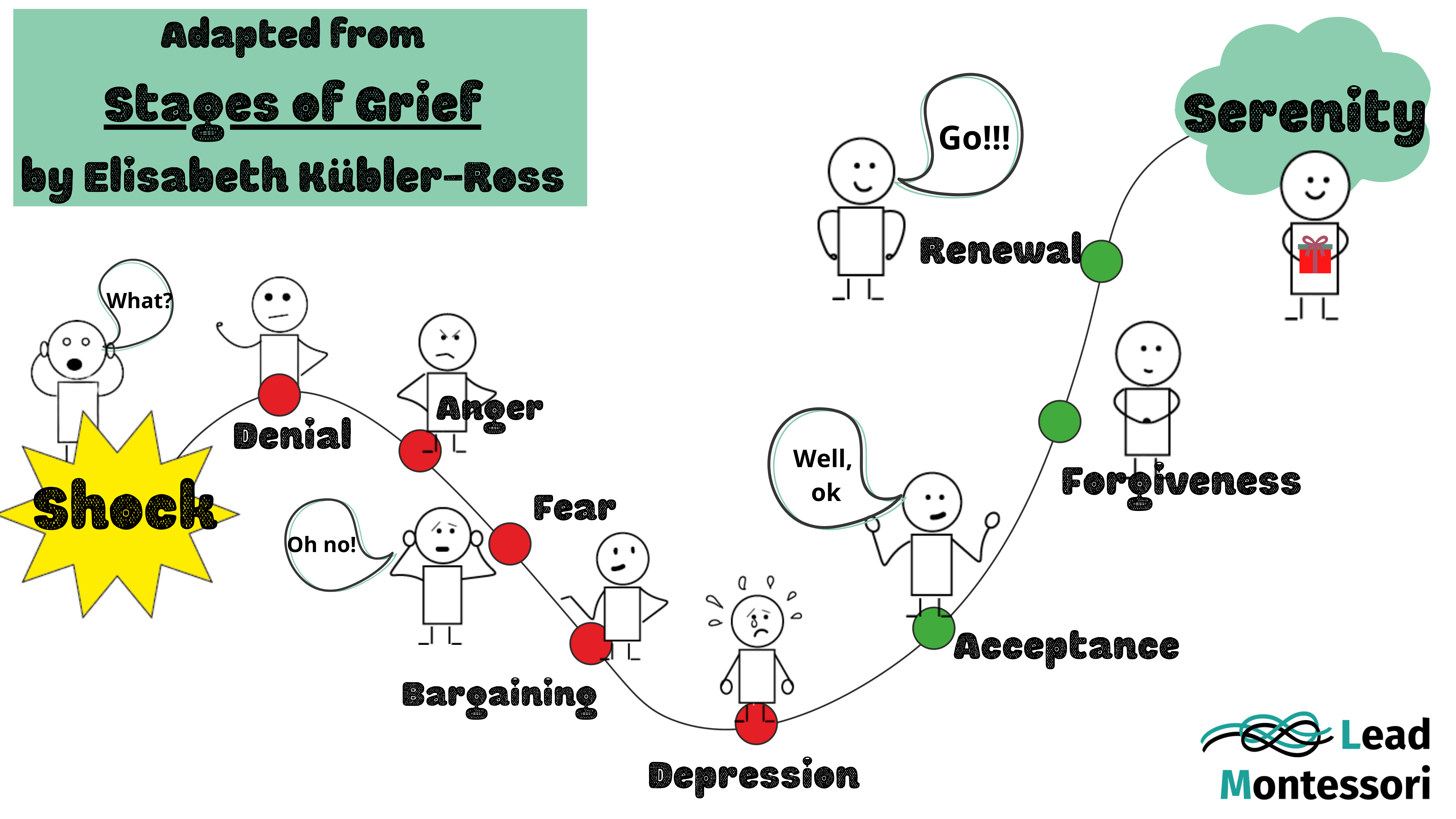
DENIAL
Denial is that coping reaction that acts as a buffer from the shock. It is usually temporary and is replaced by partial acceptance. It comes and goes. I hear people saying, “I cannot believe this is happening.” Or we see people not following the rules we are supposed to follow. In our own Montessori educational framework, we have the total opposite of distance learning. We create prepared environments to support hands-on learning that activates the child’s optimal human potential. What a huge job to transform all that almost overnight to home bound families. So, we try to resist this stage of denial if we have it, but it is there in some form in us.
ANGER
This is when we angrily shout, “Why Me?” – or in this case worldwide, “Why Us?” We more easily get angry in so many directions – our loved ones, the school, the community, and friends and neighbors. It is harder to be loving when our emotions are stressed, and we are much quicker to snap at our loved ones. This is also when we see people start blaming others. In our situation, anger also comes from fear. There is a lot to fear right now, and anger is also a way to cope with fear.
BARGAINING
This is an attempt to postpone our reactions/feelings and postpone complete acceptance of the situation. “I promise to follow the rules perfectly in exchange for being safe from harm.” Bargaining is often with one’s higher power.
DEPRESSION
Depression and deep sadness come from our sense of loss. People are experiencing so many losses right now – routines, connections, physical embrace and touching, money & resources, jobs, plans etc. And some people have lost family members. It is normal to experience loss right now and the sadness that comes with that. Comforting words are so helpful, and acknowledgement that you hear another person’s sense of loss is important rather than trying cheer someone up.
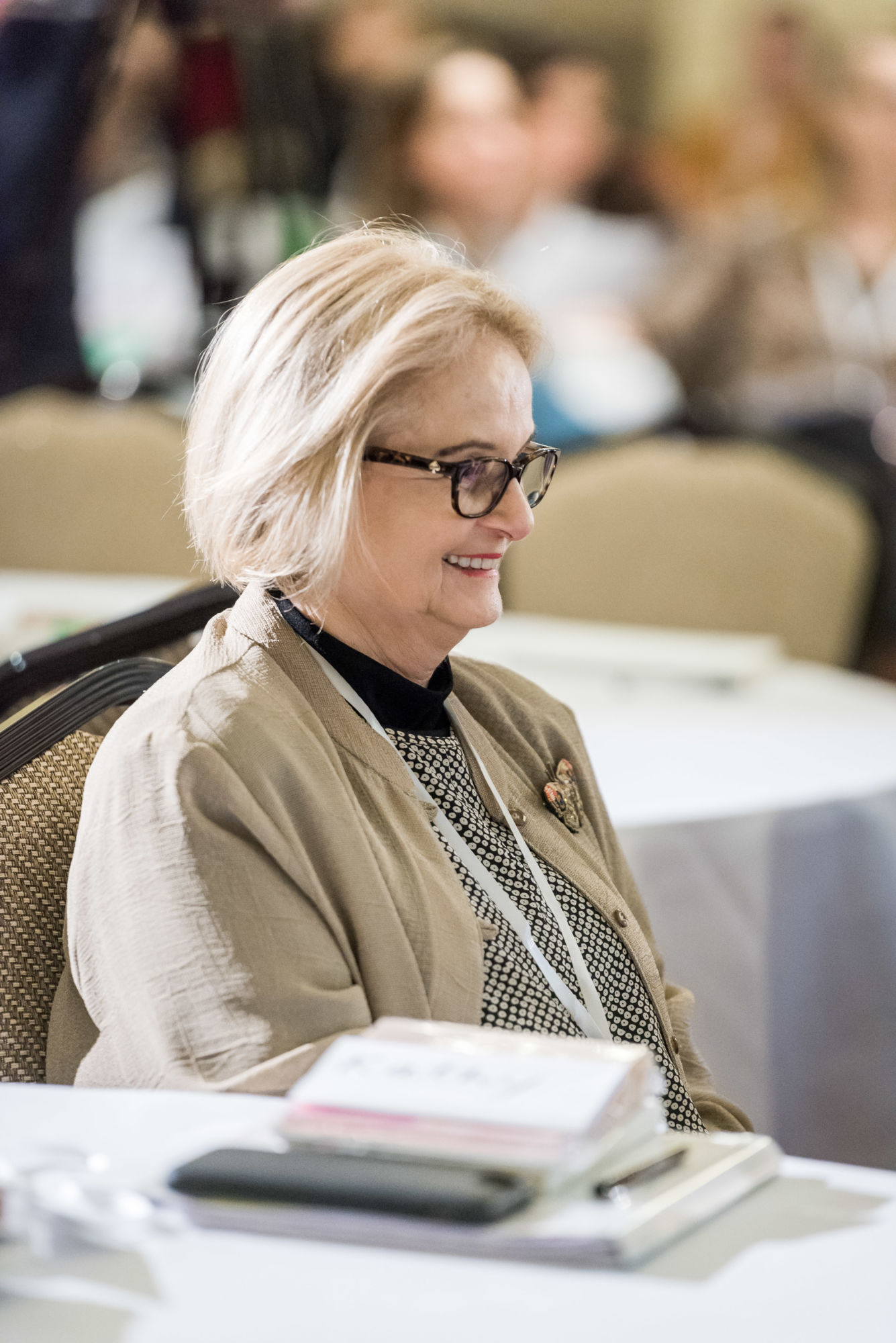
ACCEPTANCE
Reaching a state of accepting what is, we are better able to cope each day with what comes our way. We may slip and slide back and forth but acceptance is fairly solid. It must not be mistaken for happiness, but the resistance to the crisis has stopped as we accept it.
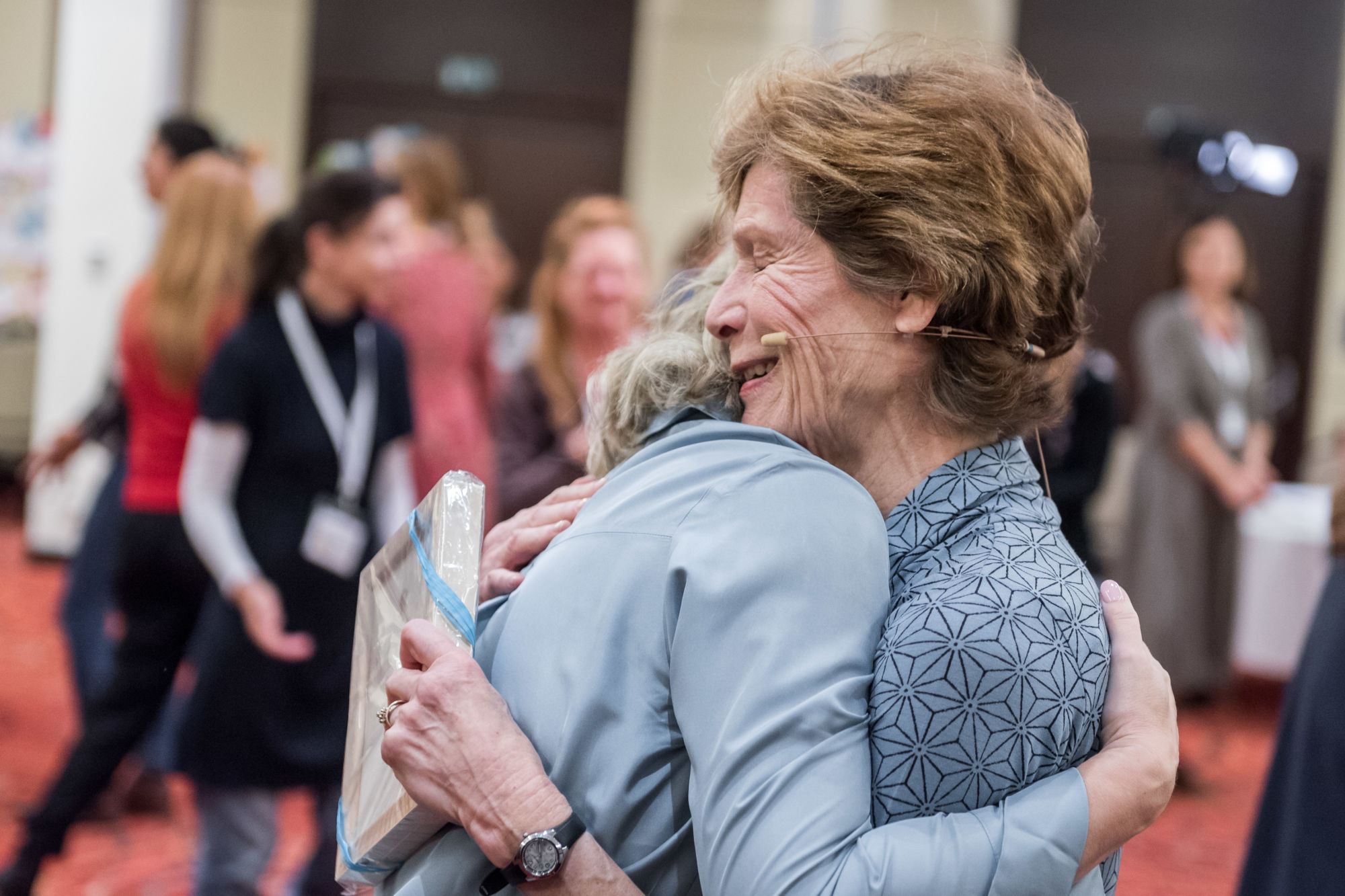
FORGIVENESS – RENEWAL – SERENTITY
These three are added to Kubler-Ross’s 5 stages as they envision what can happen beyond acceptance.
First is our need for forgiveness of ourselves -and each other – for being human throughout these coping stages.
Next, we see a renewal of energy, creativity and innovation. We are already seeing that happening. Some amazing transformative actions and resources already are occurring in our Montessori world. Kubler-Ross also described that, even in the worst of times, humans -even children – held a flame of hope in their spirit throughout the stages she described. Hope was there no matter how difficult; it is a part of the nature of our spirit.
And last, serenity is the gift of equanimity even in a crisis. This capacity we have in us. It comes beyond acceptance. It is our human spirit that rises in us and gives us the serenity to have persistence, strength and confidence.
Kathy Minardi

